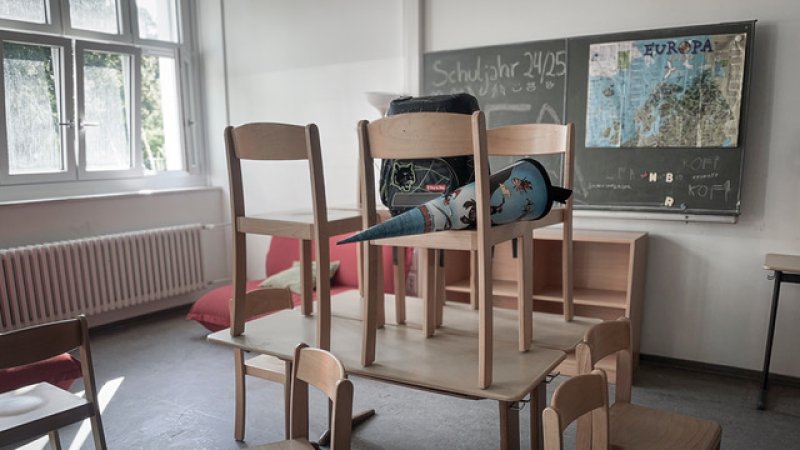In Saxony-Anhalt, after primary school, students have four options: Sekundarschule, Gesamtschule, Gemeinschaftsschule, and Gymnasium.
The primary school takes 4 years to accomplish in Saxony-Anhalt.
After primary school, parents decide which school their child attends next. The school staff help in the process by sharing their recommendations with parents. There are four options:
- Sekundarschule
- Gesamtschule
- Gemeinschaftsschule
- Gymnasium
The Sekundarschule starts in the 5th grade and ends with the 9th or the 10th grade. The secondary school prepares your child for the job market from early ages. Here your child can graduate with the following school-leaving certificates:
- einfachen Hauptschulabschluss or qualifizierten Hauptschulabschluss (after the 9th grade)
- einfachen Realschulabschluss or erweiterten Realschulabschluss (after the 10th grade)
In the 7th grade, your child should decide between a Hauptschulabschluss and Realschulabschluss. Any of these school-leaving certificates suffices to start vocational training. Students who have graduated with an erweiterten Realschulabschluss can also switch to a Gymnasium.
The Gesamtschule starts with the 5th grade and students can graduate after the 9th, 10th or 13th grade. A Gesamtschule is a kind of mixture of Hauptschule, Realschule and Gymnasium. There are two types of Gesamtschule: kooperativeGesamtschule and integrative Gesamtschule.
In a kooperative Gesamtschule, there are three different performance levels:
- the Hauptschule level
- the Realschule level
- and the Gymnasium level.
Your child can switch between these three levels, depending on their performance and notes. The integrative Gesamtschule does not have such levels, so students learn together regardless of the school-leaving certificate they are planning to obtain. But here, for each subject, there are two courses with different levels of difficulty: Your child may choose one of these two levels of difficulty depending on their performance in the subject.
In a Gesamtschule, students can graduate with an einfachen Hauptschulabschluss or qualifizierten Hauptschulabschluss after the 9th grade, einfachen Realschulabschluss or erweiterte Realschulabschluss after the 10th grade, and the Abitur after the 13th grade. With any of these three degrees, your child will have the opportunity to start a vocational training. With an Abiture, your child can choose between a vocational training and university education.
The Gemeinschaftschule starts with the 5th grade and may end with the 9th, 10th, 12th or 13th grade. In a Gemeinschaftschule, all students learn together for as long as possible, regardless of the school-leaving certificate that they are planning to obtain. This means that your child does not have to decide for a school-leaving certificate until the 8th grade.
In a Gemeinschaftschule, students can acquire einfachen Hauptschulabschluss or qualifizierten Hauptschulabschluss after the 9th grade, einfachen Realschulabschluss or erweiterte Realschulabschluss after the 10th grade or the Allgemeine Hochschulreife (Abitur) after the 12th or 13th grade. With any of these three degrees, your child will be able to start a vocational training. With an Allgemeine Hochschulreife or Abitur your child can choose between a vocational training and university education.
The Gymnasium starts in the 5th grade and ends with the Abitur after the 12th grade. In a Gymnasium, students have to learn more intensively and be very diligent. They learn at least two foreign languages during the Gymnasium years. Those who leave Gymnasium after the 9th or 10th grade, usually automatically obtain the Hauptschulabschluss or Realschulabschluss at least. With an Abitur, your child can choose between a vocational training or university education.
Once you leave the initial reception facility, your child must start the school.
You will receive a letter from the provincial school office ("Landesschulamt,") informing you of the address of the school responsible for your child. Children who do not speak German sufficiently yet should initially attend special German classes.
The staff at your accommodation facility will assist you in the registration process.
In due time, you will receive a letter from the provincial school office ("Landesschulamt"), in which you will be given all the information you need to register. The letter also contains the address of the primary school responsible for your child. This is in principle the closest primary school to where you live. During registration, your child will be examined by a doctor and his German language skills will also be checked.
The staff in your child's kindergarten can assist you in the process.
Information and regulations that apply in all federal states.
Schools in Germany
Education in Germany is regulated at the federal state level, meaning each of the 16 federal states has its school sy
